Trend of reducing chemicals, expanding the use of biological products
Plant protection drugs (PPE) play an important role in ensuring crop productivity and quality. Through each stage, PPE has become one of the key solutions to help protect rice from pests and weeds, protect productivity and stabilize production. Vietnam is assessed by many international organizations as having successfully implemented integrated pest management (IPM) programs, typically the models of "3 reductions, 3 increases", "1 must, 5 reductions" on rice. These programs have contributed to stabilizing productivity, reducing costs and limiting dependence on chemicals.
According to experts, the development and use of biological pesticides is an inevitable trend in line with the requirements of the global green market. This solution not only helps to minimize the impact of chemical pesticides but also protects the ecosystem, exploiting the advantages of Vietnam's rich biodiversity. Prioritizing research, production and application of biological products is the key to increasing added value for the rice industry.
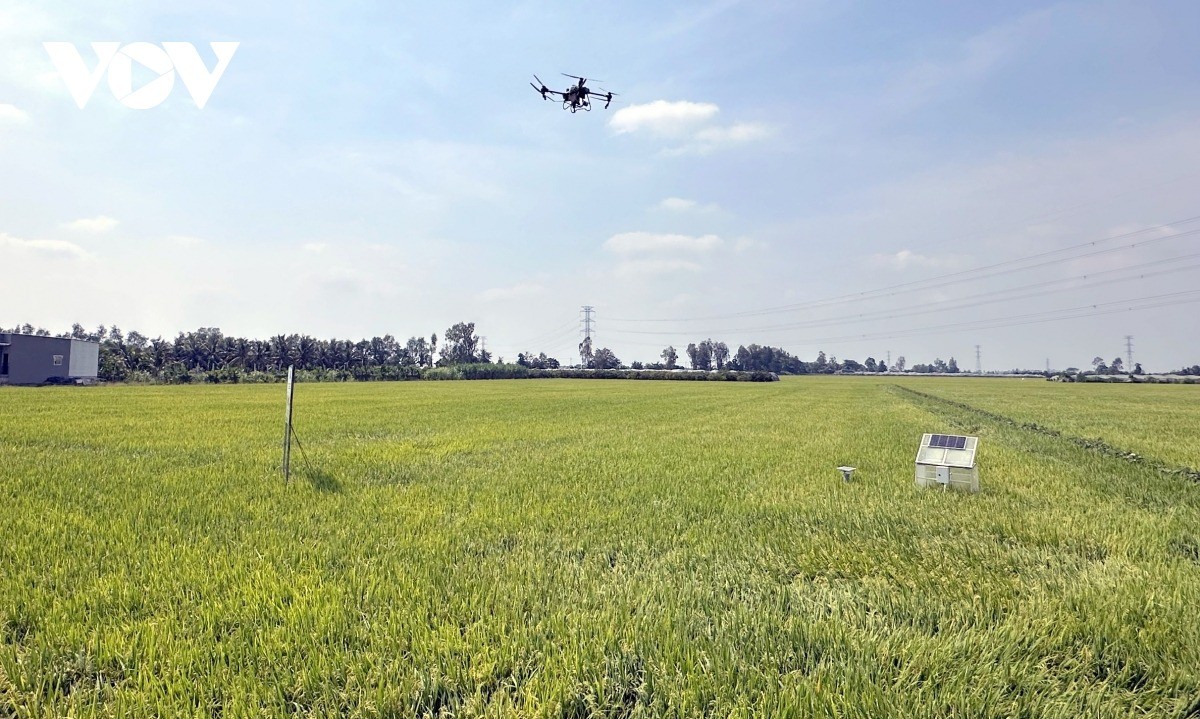
Using biological pesticides is becoming an inevitable trend in rice production in the Mekong Delta.
Dr. Lai Tien Dung, Plant Protection Institute under the Vietnam Academy of Agricultural Sciences, said that to date, the Institute has transferred 25 biological pesticide production processes and 27 application processes in pest control. Typical products include green mushrooms, white mushrooms, virus control preparations and many product groups widely used in production. In the field of rice cultivation, the Institute has identified 7 effective parasitic fungi, notably green mushrooms and purple mushrooms to control brown planthoppers. Recently, pheromones have been tested to monitor leaf rollers and stem borers with positive results.
According to Dr. Lai Tien Dung, despite its great potential, biological measures still face many obstacles when implemented in practice. The standard system is still lacking in uniformity; procedures for importing and exporting biological agents are complicated; farmers are still skeptical when applying them to crops. In fact, in Ben Tre (old), despite being supported with Bio-VAAS.1 to treat durian gummosis, many households are still hesitant. Only when testing on nearly discarded trees and seeing the effectiveness do people believe.
According to Dr. Lai Tien Dung, the important thing now is to increase investment in research on biological pesticides, improve the legal framework and policies to encourage their application, and promote training and transfer to enhance farmers' confidence and application capacity. In the context of increasing production costs, increasingly strict food safety requirements and green standards, biological measures are considered a sustainable solution to help control pests safely and open up a direction for environmentally friendly agricultural development.
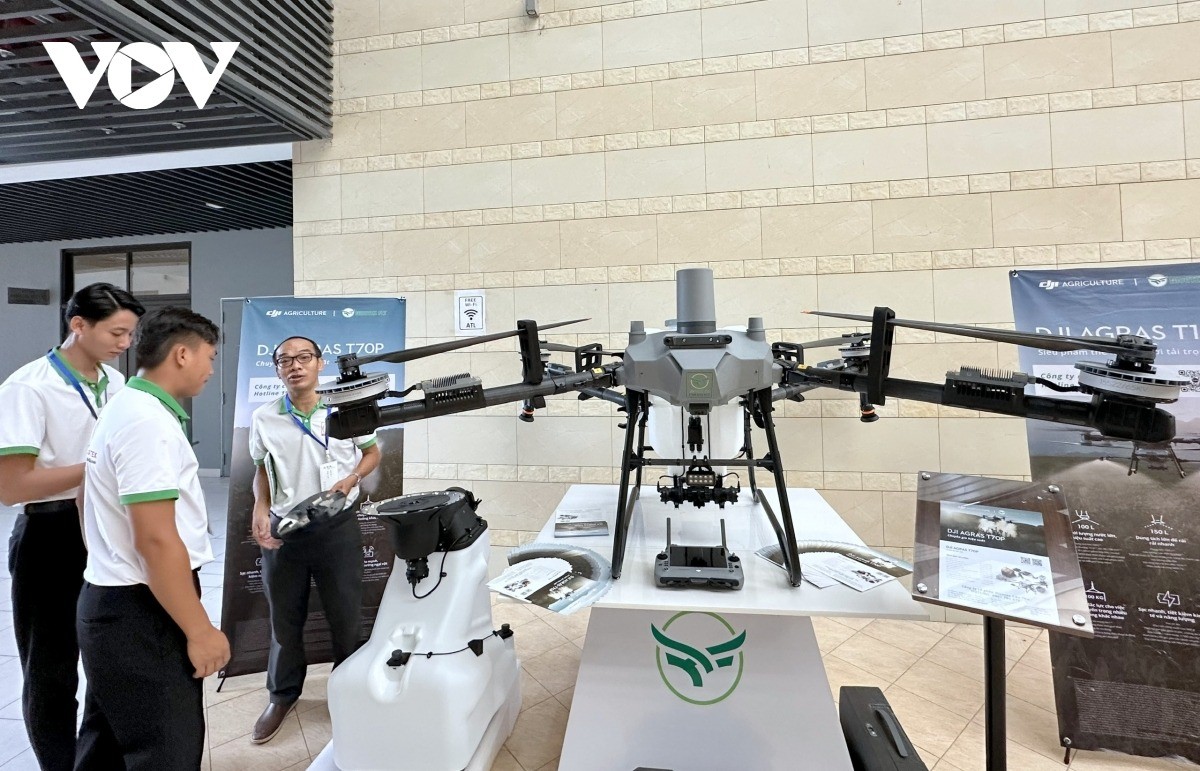
Applying scientific and technological advances in cultivation, combining biological products towards sustainable agriculture.
Citing the United Nations' forecast data that the world's population could reach 9.8 billion by 2050, it will put great pressure on agricultural output, food quality and people's access. Associate Professor, Dr. Le Van Vang, School of Agriculture, Can Tho University, said that food security, including sufficient quantity, quality and access for everyone, is currently facing great challenges as climate change and the global supply chain continue to break down. The impact is particularly severe in coastal and island countries, where poor people lack the ability to withstand natural disasters, droughts, salinity or extreme heat.
In the Mekong Delta, the mindset of dependence on chemical pesticides is still widespread. According to the Food and Agriculture Organization of the United Nations (FAO), the amount of pesticides used in Vietnam in 2023 will decrease by 20% compared to 2022, but compared to the 1990s, it will still increase by about 10%. Currently, many effective biological products have not been registered for circulation due to the evaluation criteria according to chemical standards.
Associate Professor, Dr. Le Van Vang said that in order for biological drugs to become a mainstay in production, it is necessary to increase field supervision; flexibly combine chemistry and biology; promote communication and technical guidance for farmers; and maintain long-term investment. Using biological drugs is no longer a trend but has become an inevitable requirement for Vietnamese agriculture.
Agriculture affirms its role as the backbone of the economy
According to Prof. Dr. Nguyen Van Tuat, Chairman of the Vietnam Plant Protection Science and Technology Association, rice pests in the Mekong Delta (MD) last year were complicated with brown planthoppers, grain sterility disease, rats and golden apple snails. Along with the pest developments, the amount of biological pesticides is on the rise again, currently accounting for nearly 20% of the total number of pesticides allowed for use in Vietnam and continuing to increase rapidly. Many localities have issued programs to develop biological pesticides, contributing to expanding the application area.
Prof. Dr. Nguyen Van Tuat said that Vietnam currently has many groups of biological drugs, with more than 850 registered products. The target by 2025 is to have a 30% registration rate for biological drugs and a 20% actual usage rate. Many models of applying biological drugs on rice in Dong Thap, An Giang, and Tay Ninh have shown positive results. Currently, specialized agencies are reviewing and amending regulations to encourage the use of biological products.
Prof. Dr. Nguyen Van Tuat said that when product quality is well controlled and people are fully instructed, biological pesticides can completely replace chemical pesticides in many production models. This is also a direction that is consistent with the goals of green agriculture, organic agriculture and reducing chemical residues in agricultural products.
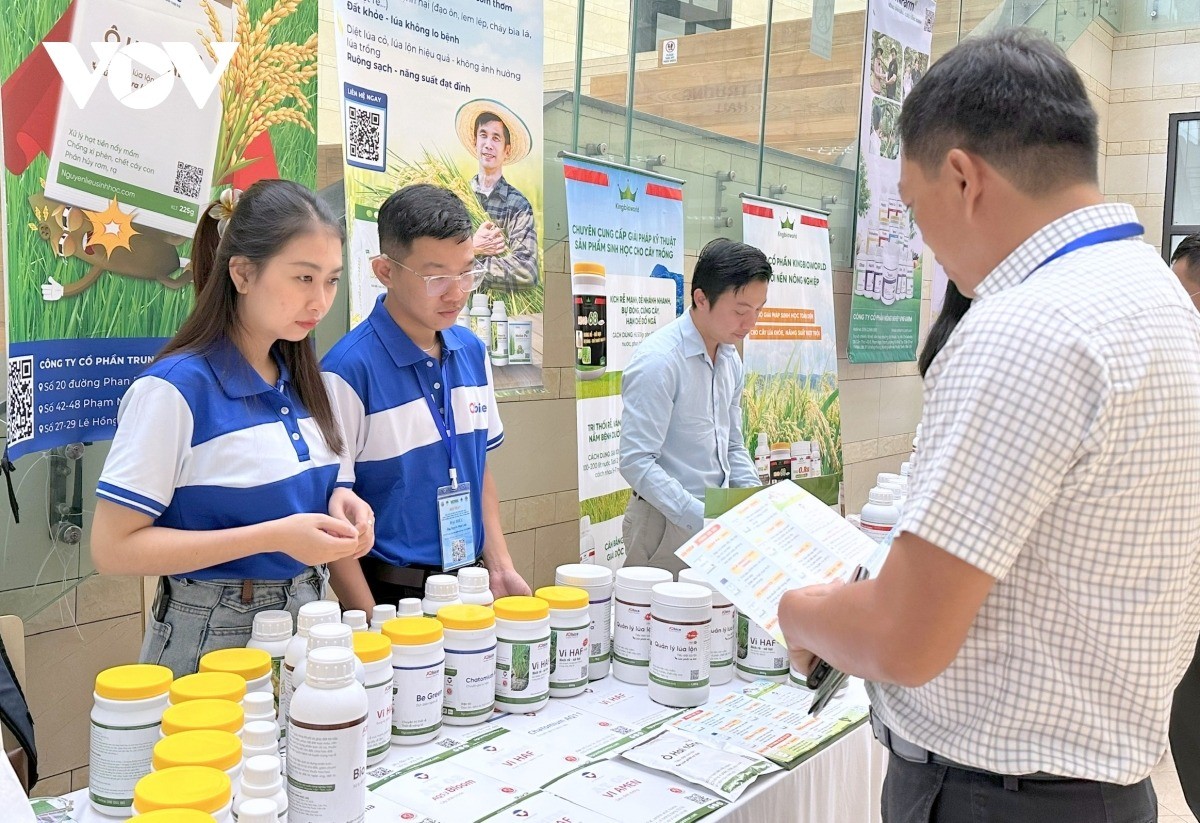
According to the assessment, biological measures are considered a sustainable solution to help control pests safely.
The Ministry of Agriculture and Environment is implementing a project of 1 million hectares of high-quality, low-emission rice in the Mekong Delta, aiming to create the foundation for an era of green and sustainable rice development. The application of biological products is increasing, contributing to ensuring clean, safe rice for domestic consumers and improving export competitiveness for businesses and the country.
Mr. Bui Ba Bong, Chairman of the Vietnam Rice Industry Association, said that pesticides play a key role in the development of green and sustainable rice, especially the use of biological products, which are increasingly being interested and widely applied. The goal is to create “green, clean” Vietnamese rice grains, bringing benefits to domestic consumers and increasing export value. The application of scientific and technological advances in cultivation, combined with biological products, aims at the goal of prosperity for farmers and environmental protection for future generations.
Using biological pesticides is becoming an inevitable trend in rice production in the Mekong Delta, helping to reduce chemicals, protect the environment and increase the value of Vietnamese rice for domestic and international consumers. With the cooperation of scientists, businesses and farmers working together, it will help stabilize productivity, effectively control pests, meet food safety standards, and move towards green and sustainable agricultural production.
Source: https://baolaocai.vn/che-pham-sinh-hoc-giai-phap-de-canh-tac-lua-gao-ben-vung-post887086.html








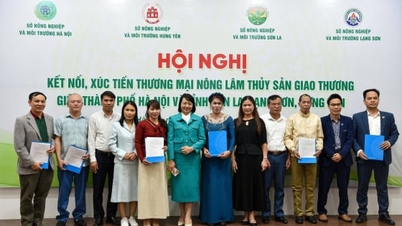

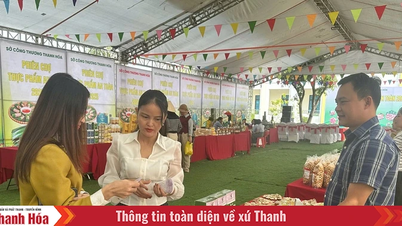

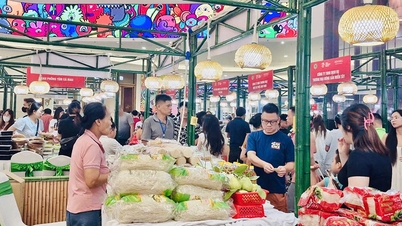

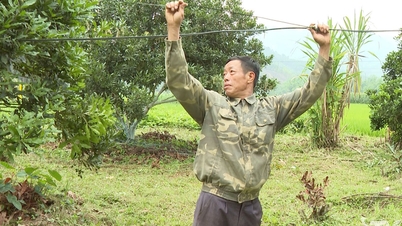





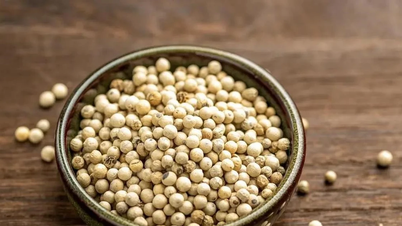


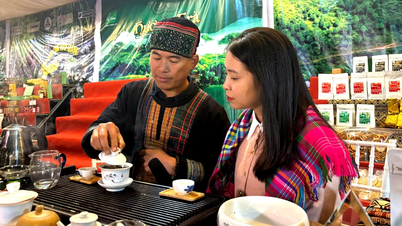
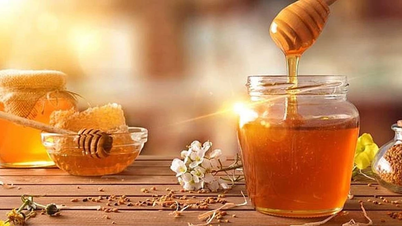









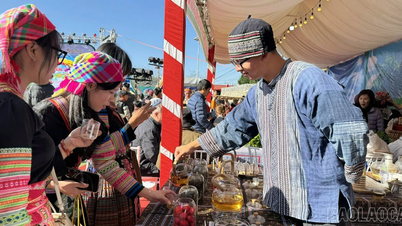




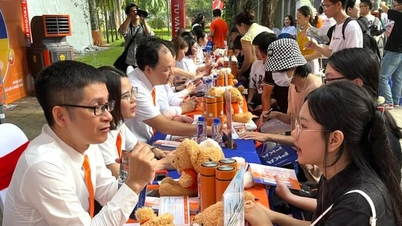

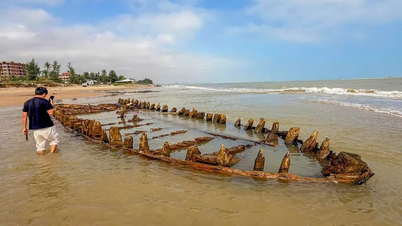

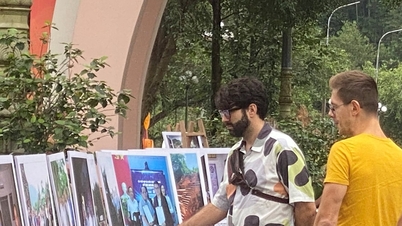

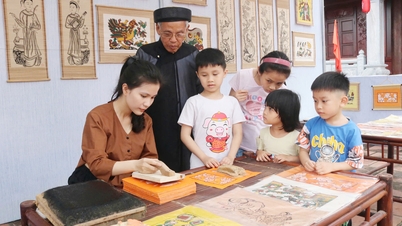

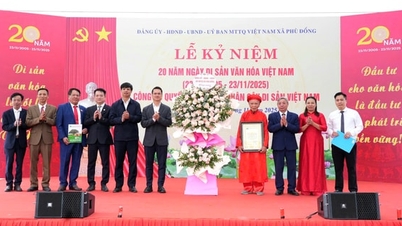





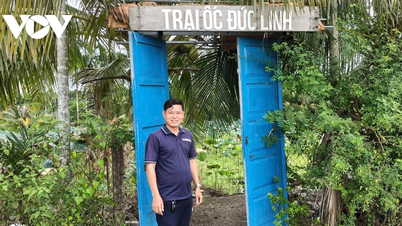

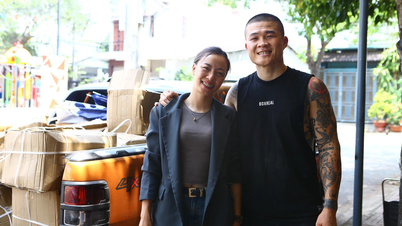

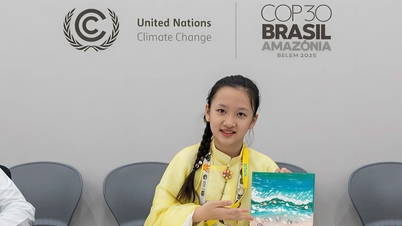




























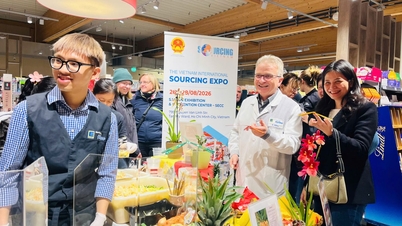





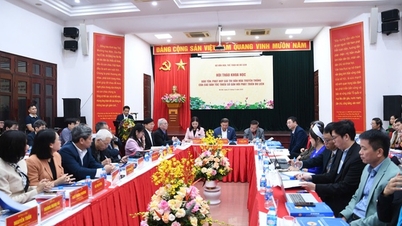
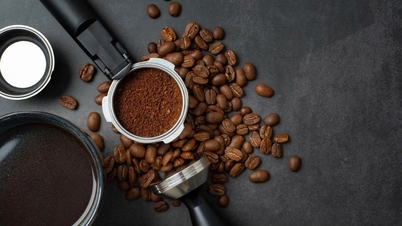




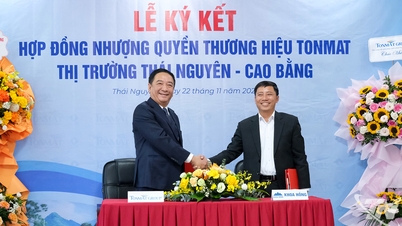














Comment (0)